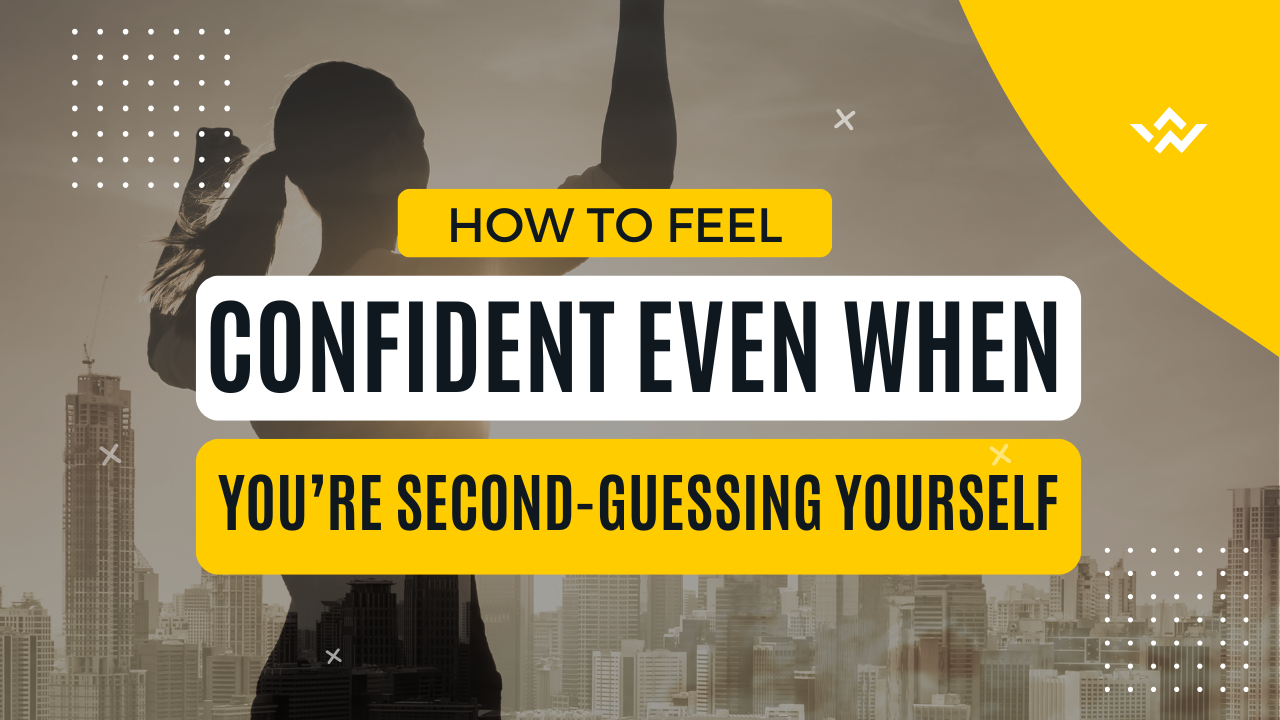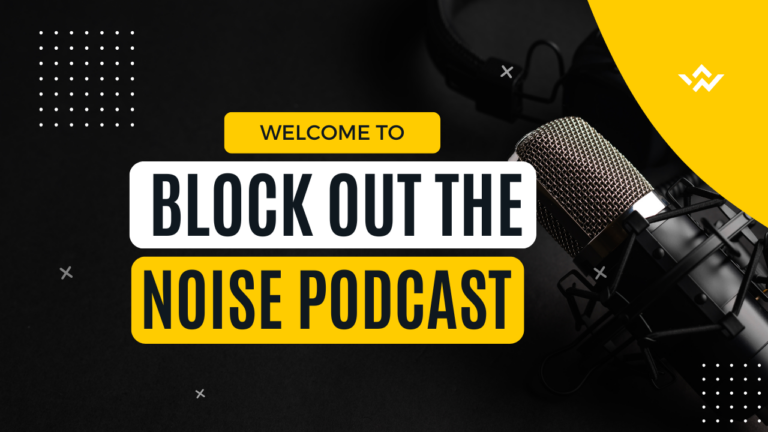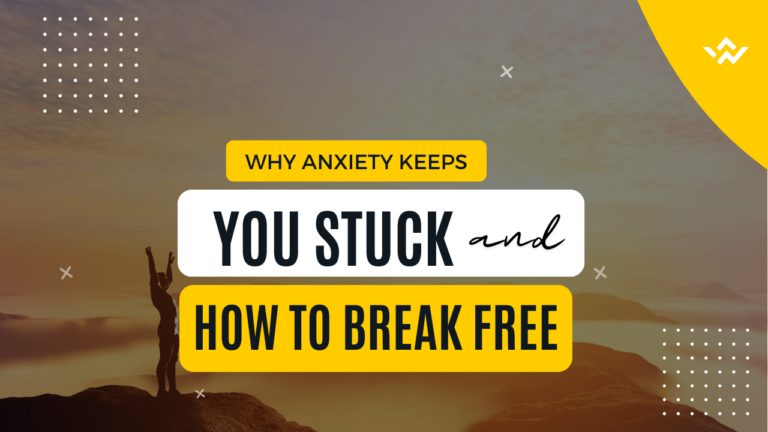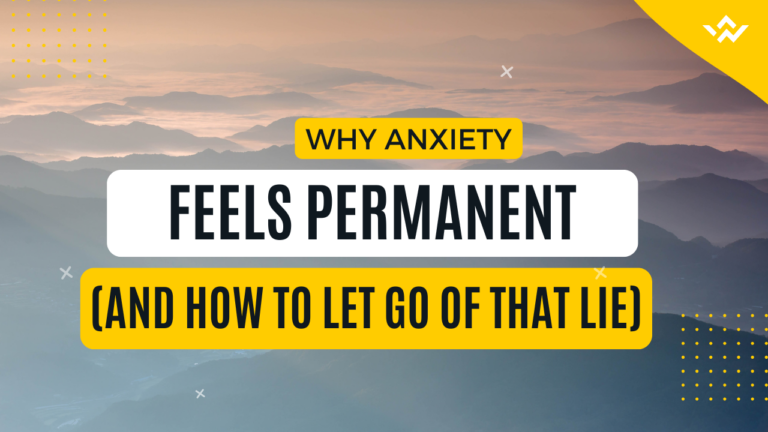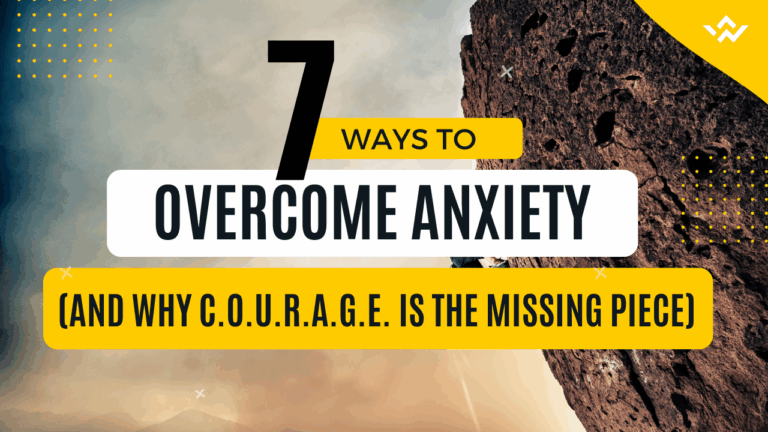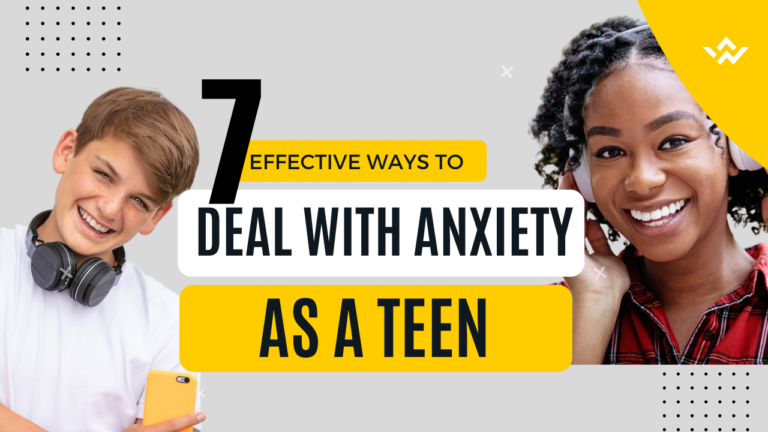Ever Look Around and Wonder, “How Are They So Confident?”
You see them—those people who walk into a room like they belong there. They raise their hand in class, try new things, speak their mind. And meanwhile, you’re sitting there wondering how they make it look so easy.
But here’s what most people don’t realize: even confident people feel doubt. They’ve just learned how to move through it. That’s what we’re diving into today—how to stop letting anxiety and self-doubt control your life and start building real confidence, even if you feel like you’ve never had it.
This blog is your extended guide based on Episode 3 of the Block Out the Noise Podcast. Think of this like the best friend who helps you quiet the fear and reminds you: you are way more capable than you think.
👇 Here’s what we’ll cover—click any section to jump to what you need most, or scroll through to take it all in.
Confidence Isn’t Magic — It’s a Skill
Confidence isn’t something you’re either born with or not. It’s not a “you have it or you don’t” Confidence isn’t something you’re either born with or not. It’s not a “you have it or you don’t” situation. It’s something you build—like a muscle—through practice, repetition, and small moments of bravery. Every time you try something new, every time you speak up even though you’re nervous, every time you take action despite fear—you’re building that confidence muscle.
If you’ve ever told yourself:
- “I wish I were confident like her.”
- “I don’t even know how to believe in myself.”
- “I mess everything up. I can’t do anything right.”
Pause right now and remind yourself: Those thoughts aren’t the truth. They’re just the noise. And when you name it, you can challenge it.
Confident people aren’t fearless. They’ve just learned how to work with their fear instead of for it. They do the scary thing anyway. They speak up even if their voice shakes. They try again even after failing.
Want to take a deeper dive into what holds you back? Read the blog post for Episode 2: Why Anxiety Really Holds You Back, which explores how fear and avoidance impact your confidence journey.
Try this: For one day, write down the things you say to yourself when you make a mistake. Then go back and ask, “Would I say this to someone I love?” If the answer is no, it’s time to rewrite the narrative.
The Most Important Voice You’ll Ever Hear Is Your Own
Let’s talk about something that isn’t talked about enough: self-talk. The way you talk to yourself matters more than you think. You spend more time listening to your inner voice than you do anyone else. And if that voice is constantly putting you down, no wonder it’s hard to feel confident.
Have you ever heard someone say something about themselves that made you pause?
- “I’m so annoying.”
- “I hate how I look.”
- “I always mess things up.”
Now imagine saying that to a best friend. You probably wouldn’t—and for good reason. So why do we think it’s okay to say it to ourselves?
There’s something powerful about how we describe ourselves. In the episode, I shared about someone close to me who said “I just do…” when asked what they do. That word “just” was so small—but it carried a lot. It told me how they felt about themselves.

When we speak about ourselves in a way that minimizes who we are, it teaches the world—and our own minds—that we don’t believe we’re worth much. It’s not always loud or obvious. Sometimes it’s the way we brush off compliments. The way we hide our talents. The way we stay silent even when we have something important to say.
Try catching your self-talk this week. Are you putting yourself down? Are you apologizing when you haven’t done anything wrong? Are you hiding your wins? What would change if you chose kindness instead?
It doesn’t have to be perfect. But it does have to be intentional. One kind thought at a time, you can change how you feel.
Your Brain Believes What You Say
You may not realize it, but your brain is always listening to you.
If you constantly tell yourself you’re not good enough, your brain starts to believe it. That’s not just a feeling—it’s neuroscience. The more you repeat a thought, the more your brain wires that pathway. This is called neuroplasticity. And while that sounds like a big, scientific word, what it really means is: you can train your brain to think differently.
It starts with your words.
There’s a quote from the episode that I love: “Don’t speak negatively about yourself, even as a joke. Your body doesn’t know the difference.”
Even if you say something in a joking way, your brain still hears it. Your body still absorbs it. You’re still reinforcing a message that might not be true.
So instead of jokes that tear you down, what if you practiced speaking about yourself like someone who matters?
Instead of “I’m so awkward,” try “I’m learning how to feel comfortable in new situations.” Instead of “I never get anything right,” try “I’m figuring things out step by step.”
And if this feels fake or awkward at first, that’s okay. It’s not supposed to feel perfect right away. It’s like learning a new language—one of self-trust, kindness, and courage.
The more you practice, the more natural it becomes. And over time, you start to believe in yourself the same way you believe in the people you care about.
The “E” in COURAGE: Embrace the Wins
In the COURAGE Method, E stands for “Embrace the Wins.” It’s about learning to recognize your progress—even when it feels small or invisible.
Anxiety has a way of making you focus on everything that’s going wrong. You dwell on mistakes, overlook successes, and downplay anything that goes well. But when you train your brain to notice what’s going right, something powerful happens: you start seeing yourself differently.
Confidence builds when you say, “Hey, I did that. That was hard, and I did it anyway.”
And wins don’t have to be big:
- You got out of bed today even though you didn’t want to? That’s a win.
- You spoke up in class even though your heart was pounding? That’s a win.
- You caught yourself in negative self-talk and rewrote it? Huge win.
One teen I worked with struggled just to attend school each day due to overwhelming anxiety. The first “win” wasn’t perfect attendance—it was walking into the building and staying for half the day. We celebrated that. A few weeks later, they stayed all day. Then they spoke to a classmate in the hallway. These small moments added up—and slowly, their confidence started to rise.
Another young adult I supported finally made a phone call they had been avoiding for weeks. Their voice shook, they forgot what to say halfway through, and they had to call back—but they did it. That’s courage. That’s a win.

Confidence isn’t built through perfect performance—it’s built through honest acknowledgment. Embrace the wins. Let them count.
Need help practicing this? Use a simple note in your phone to track 3 small wins each day. It builds a habit—and a mindset—of self-trust.
In the COURAGE Method, E stands for “Embrace the Wins.” It’s about learning to recognize your progress—even when it feels small or invisible.
Anxiety has a way of making you focus on everything that’s going wrong. You dwell on mistakes, overlook successes, and downplay anything that goes well. But when you train your brain to notice what’s going right, something powerful happens: you start seeing yourself differently.
Confidence builds when you say, “Hey, I did that. That was hard, and I did it anyway.”
And wins don’t have to be big:
- You got out of bed today even though you didn’t want to? That’s a win.
- You spoke up in class even though your heart was pounding? That’s a win.
- You caught yourself in negative self-talk and rewrote it? Huge win.
Confidence isn’t built through perfect performance—it’s built through honest acknowledgment. Embrace the wins. Let them count.
Need help practicing this? Use a simple note in your phone to track 3 small wins each day. It builds a habit—and a mindset—of self-trust.
What Embracing Your Wins Looks Like (For Real)
Let’s get real for a second: most teens and young adults are terrible at acknowledging their wins. I’ve seen it in session after session.
They’ll say something like, “I finally texted that friend I’ve been scared to reach out to…” and follow it up with, “…but it’s not a big deal.”
Why do we do that? Because we’ve been taught to minimize. To not make a fuss. To keep pushing forward and not stop to celebrate. But that mindset only keeps us stuck.
When you say, “It’s not a big deal,” what your brain hears is: “This progress doesn’t matter.”
But it does. It matters because you did something uncomfortable. You took a step. You grew. And confidence is just a collection of those steps over time.
Examples of this might look like a teen who’s nervous to walk into a social club at school. One week, they set a goal to just walk by the classroom. The next week, they stepped inside for a minute. The following week, they stayed for part of the meeting. These small steps each count as a win.
Or maybe someone has been putting off applying for a part-time job because they’re afraid of messing up the interview. The first win might be opening the application page. Then it’s filling out one section. Then hitting submit. Every one of those moments is a step toward confidence.
These are the kinds of moments we’re talking about when we say “embrace the wins.”

Another story that comes to mind is someone who wanted to apply for a part-time job but kept putting it off. The fear of not being good enough or messing up the interview was so loud that they convinced themselves not to try. But after we walked through the steps and talked through the fear, they applied. Then they prepared for the interview. And eventually—they got the job. That first step to apply was the win that unlocked everything else.
If you struggle to embrace your wins, try this:
- Keep a daily “small wins” journal.
- Text a friend your win of the day.
- Share it with your therapist.
- Write yourself a post-it note that says “That was brave.”
- Create a “confidence folder” in your phone with screenshots or notes of positive feedback, things you’re proud of, or goals you’ve accomplished.
The key is this: if something felt hard and you did it anyway, it counts. Start giving yourself credit. You deserve it.
Let’s get real for a second: most teens and young adults are terrible at acknowledging their wins. I’ve seen it in session after session.
They’ll say something like, “I finally texted that friend I’ve been scared to reach out to…” and follow it up with, “…but it’s not a big deal.”
Why do we do that? Because we’ve been taught to minimize. To not make a fuss. To keep pushing forward and not stop to celebrate. But that mindset only keeps us stuck.
When you say, “It’s not a big deal,” what your brain hears is: “This progress doesn’t matter.”
But it does. It matters because you did something uncomfortable. You took a step. You grew. And confidence is just a collection of those steps over time.
If you struggle to embrace your wins, try this:
- Write yourself a post-it note that says “That was brave.”
- Keep a daily “small wins” journal.
- Text a friend your win of the day.
- Share it with your therapist.
FAQs About Building Confidence (When You Struggle With Self-Doubt)
Final Thoughts: You’re Already More Confident Than You Think
Here’s the truth: confidence isn’t about being loud, bold, or fearless. It’s about trusting yourself. Even just a little. It’s about showing up. Trying again. Speaking gently to yourself instead of tearing yourself down.
And the more you embrace your wins, the more you’ll see: you already have what it takes. You’ve always had it.
If no one has told you lately, I’m proud of you. And if you’re still learning how to be proud of yourself, that’s okay too.
Keep going.
And if you’re looking for support beyond the blog, download the free Anxiety Survival Toolkit, or reach out to a therapist who can walk beside you on this journey.
Until next time—
Keep moving forward. Trust yourself.
And never forget: You have what it takes to block out the noise.

